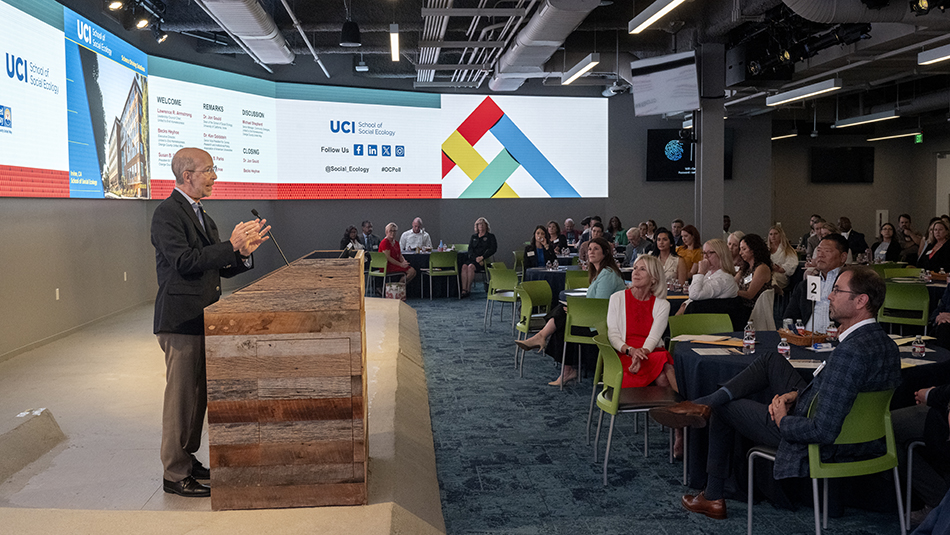
Dean Jon Gould spoke of the importance of the UCI-OC Poll at the first gathering to discuss solutions. Inset photos from top: Gould, Ken Goldstein explains the poll’s findings, Sue Parks and Becks Heyhoe discuss the United Way of Orange County’s efforts to end homelessness, elected officials participated in the event. Photos by Steve Zylius
School of Social Ecology, United Way partner to find solutions
More than 100 policymakers, community leaders and researchers met on campus Thursday to craft solutions for Orange County’s top concerns: homelessness and the lack of affordable housing in the county.
UC Irvine’s School of Social Ecology and United to End Homelessness, an Orange County United Way initiative, hosted the event to discuss the results of the 2023 UCI-OC Poll and respondents’ views about Orange County’s homelessness and housing issues.
The discussion presented an opportunity for leaders and decision-makers to learn the details of the poll findings from the research team and collaborate and shape the priorities of United to End Homelessness.
“One thing that jumped out to me was that 85% of respondents said they would support their taxes being increased in order to provide funding to reduce homelessness — and this had majority support from all political parties! What is inspiring to me is that people in our community are willing to pitch in to help others,” said Sue Parks, president and CEO of Orange County United Way.
In the 1980s and ’90s, the school sponsored the Orange County Annual Survey under the direction of then Professor Mark Baldassare. Baldassare left to become the president and CEO of the Public Policy Institute of California, and the poll transitioned to the California Poll.
Today, more than two decades later, “Orange County has grown so substantially that it is now one of the six most populous counties in the country,” said Jon Gould, dean of the School of Social Ecology. “If it were a city it would be the third largest in the nation. Also, Orange County is one of the few truly purple counties in America – a place where the left and right not only live side-by-side but must find a way to collaborate to get things done. As the county has grown, its leaders need reliable methods to track and analyze residents’ concerns, views, and priorities on a variety of pressing issues so that we are not forced to rely on anecdotal understandings or the feedback from the handful of residents who show up for city council meetings. As Orange County’s hometown research university, we are dedicated to meeting this need and to helping to bring together business leaders with elected officials and community members to discuss workable responses to these problems.”
Such dedication extends beyond homelessness.
“Whether the issues concern housing, education, business climate, sustainability, transportation, crime or many other challenges,” Gould added, “area leaders will be better equipped to navigate the local environment and respond if they have reliable, timely data on the attitudes, priorities and opinions of OC residents and a neutral place and convener to consider them.”
That’s why the School launched the UCI-OC Poll.
Faculty members in the School, including Alejandra Reyes, Nicholas Marantz and Jae Hong Kim, helped to construct the survey, which was then conducted in the field by Ken Goldstein, senior vice president for survey research and institutional policy at the American Association of Universities.
Findings
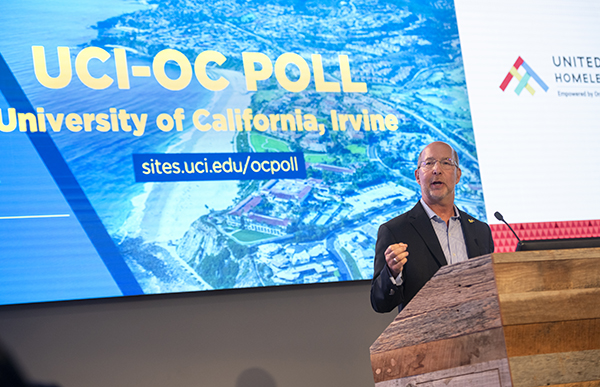 In total, 818 adults across Orange County were surveyed about views on the most pressing social, economic, and political issues facing the region. Released this week, the poll’s primary conclusion is that Orange County residents seek action to address homelessness and affordable housing and are supportive of many policy responses.
In total, 818 adults across Orange County were surveyed about views on the most pressing social, economic, and political issues facing the region. Released this week, the poll’s primary conclusion is that Orange County residents seek action to address homelessness and affordable housing and are supportive of many policy responses.
According to the poll, seven in 10 residents (71%) described homelessness as a “very serious” problem, and 69% had similar views regarding the county’s lack of affordable housing. Framing these numbers through a personal lens, a majority (55%) of respondents stated they know someone who is or has been homeless.
In addition, more than half (52%) of respondents who are renters have worried in the past year about being able to pay their rent and the threat of eviction, while one-fifth of homeowners (20%) have worried in the last year about being able to pay their mortgage and the risk of foreclosure.
“This survey demonstrates the personal impact of homelessness on Orange County residents and the groundswell of support behind finding tangible and dignified housing solutions,” said Becks Heyhoe, executive director of United to End Homelessness. “To see that a majority of respondents have personally known someone who is or has experienced homelessness reinforces why respondents are supporting a variety of solutions and are ready to take action.”
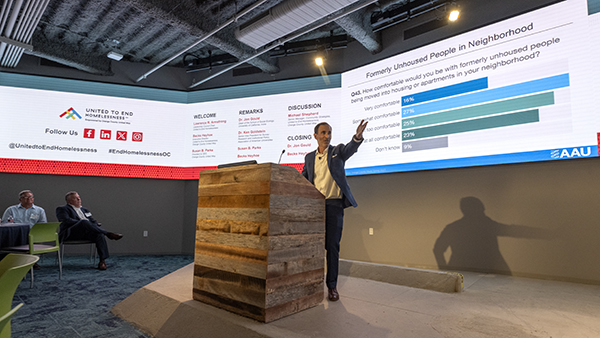 By wide margins, Orange County residents conveyed a collective responsibility to solve homelessness and the lack of affordable housing, seeking leadership from and partnership among county (66%) and city (66%) officials, nonprofit organizations (42%), advocacy groups (34%), religious organizations (28%), and large companies (27%).
By wide margins, Orange County residents conveyed a collective responsibility to solve homelessness and the lack of affordable housing, seeking leadership from and partnership among county (66%) and city (66%) officials, nonprofit organizations (42%), advocacy groups (34%), religious organizations (28%), and large companies (27%).
A majority (85%) of respondents across varying demographics and geographic locations in the county expressed support for a bond measure/tax increase to reduce homelessness, along with other approaches including increased mental health services (88%), additional shelter resources (78%), and long-term housing for those experiencing homelessness (76%) among other solutions.
No surprise
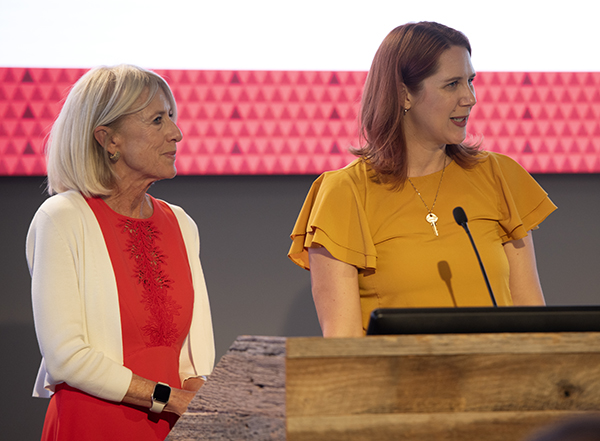 For some who responded to the poll, the high rate of local concern over affordable housing is no surprise.
For some who responded to the poll, the high rate of local concern over affordable housing is no surprise.
“I don’t have data in front of me, but if you look at economic models from around the country, of major metro areas (like Orange County), you’ll see that housing expenses as a percentage of people’s income is probably at an all-time high,” John Kosecoff, a former hedge fund manager who lives in Laguna Woods, told the Orange County Register. “So, no, the idea that people are particularly concerned about this, right now, doesn’t shock me. We’re at the precipice of this becoming a disaster.”
Kosecoff added that for a growing number of retirees who don’t own a home, and who don’t have growing income, the lack of affordable housing is a physical and emotional threat.
“People want their dignity. So, even if it means they’re skipping meals, they’ll do what they can to maintain what the world perceives as a middle-class life,” he said. “But I think we’re close to seeing that become impossible for a lot of people.”
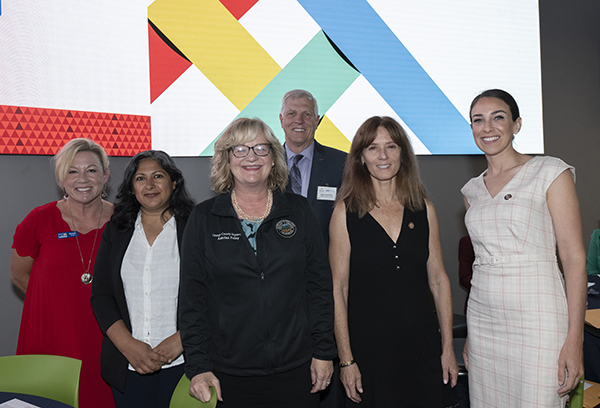 Creative solutions
Creative solutions
Jennifer Friend, CEO of Project Hope Alliance, who attended Thursday’s discussion, said it got her and fellow participants thinking about creative solutions.
“We talked about how we can simultaneously invest in the prevention of tomorrow’s adults experiencing homelessness while building housing for our current unhoused community members,” said the UCI Social Ecology alumna who was homeless when she was a child. “The data shows that our community is ready to start investing in K-12 students experiencing homelessness today so that they won’t become adults experiencing homelessness tomorrow.”
Other participants discussed focusing on particular populations.
“Whether it’s veterans, or families or transitional-aged youth, focusing on a specific group could be an effective strategy for solving homelessness,” said Christy Cornwall of Providence Mission Hospital. “I’m a firm believer in prevention and somehow connecting with the institutions that people naturally experience could be pathways to receiving support before they become homeless, like through an eviction diversion program through the courts or connecting with our utility companies so people can receive support.”
And, she added, there is a “need to turn the narrative,” such as through a public awareness approach.
Program priorities
Using the survey data as a prompt for the collaborative session, the outcomes and ideas generated at the event will help inform United to End Homelessness’ immediate and long-term priorities within its primary programs and beyond, including:
- WelcomeHomeOC, a housing navigation and landlord incentive program to help individuals, veterans, and families experiencing homelessness to secure housing in private market apartments.
- Housing Advocacy, led by the Housing Champions Advocacy Network’s collection of community members who advocate for affordable and permanent supportive homes as best practice solutions that are needed in our community.
- Community Engagement, including broad public awareness activities to break down myths, create productive conversation and outline best practices for solutions through social media, speaking engagements, online events, classes, social media, and other public educational opportunities.
“This poll demonstrates the power of bringing people together to solve local challenges like homelessness and housing issues while reinforcing the vision behind establishing United to End Homelessness five years ago,” Heyhoe said. “Although progress has been made, we now have data demonstrating the commitment and will of residents to get involved and support solutions for the collective well-being of Orange County. We look forward to collaborating with our partners to address these needs and solve them together.”
At the program’s conclusion, Robert Morse, who has been an advocate for the homeless for about 18 years, said he is hopeful events like Thursday’s can help lead to a solution. Sporting a sizable white beard and a pin-filled ballcap with the words “Santa Bob” across the front, Morse mentioned that he knows homelessness first hand, having spent 10 years on the street before finding housing and later joining several homeless-related boards and committees.
However, the At-Large Seat Representative for Older Adults on the Orange County Commission to End Homelessness’ Continuum of Care Board cautioned solutions for those in need of housing “will happen slowly. That’s because locating housing is a problem for everyone in Orange County, not just the homeless.”
Next steps
Gould remarked during his introduction that this first iteration of the UCI-OC Poll will be followed by more addressing various issues facing the region.
“The next topic of the poll will be on the supposed brain drain in Orange County,” the dean revealed to the crowd, “and we would look forward to partnering with several of you and your organizations on that question.”
Community Chat: Aug. 24
The Orange County United Way’s United to End Homelessness Community Chat on Thursday, Aug. 24, features Dean Jon Gould and Tommy Newman, vice president of engagement and activation for United Way of Greater Los Angeles, discussing the UCI-OC Poll and how it will impact the work to end homelessness in our community. Learn more and register for the noon-12:30 p.m. virtual event online.
— Mimi Ko Cruz and Matt Coker
Related
Orange County Register: UC Irvine poll: Homelessness, affordable housing top concerns in OC